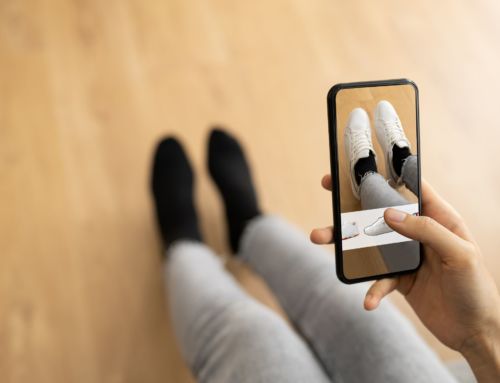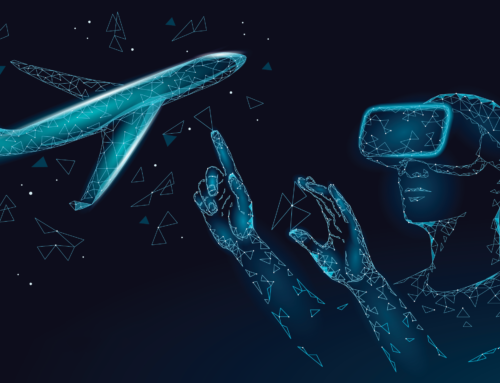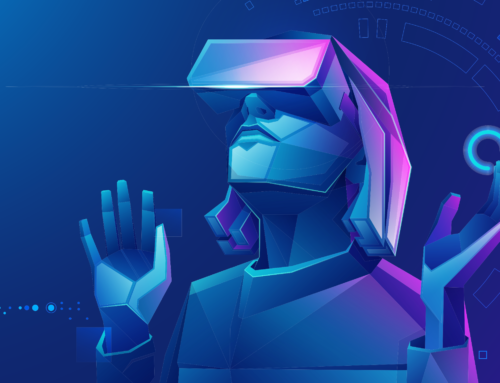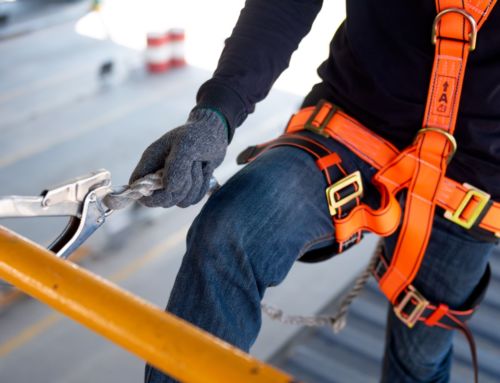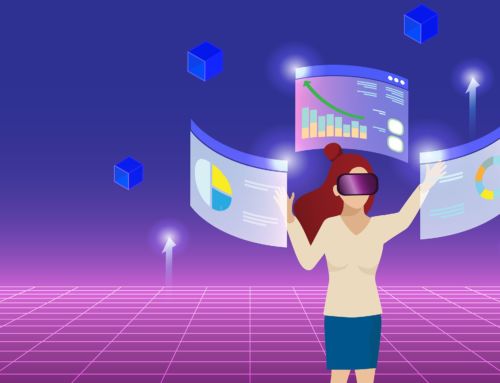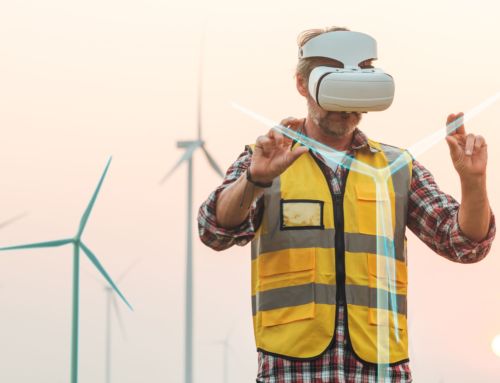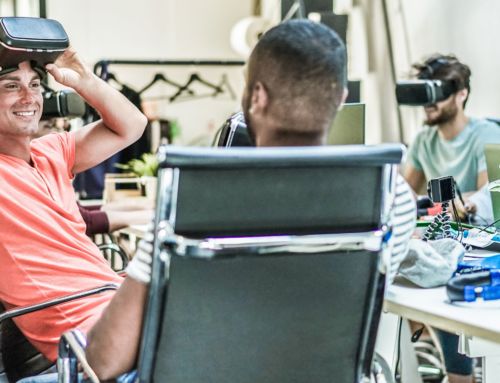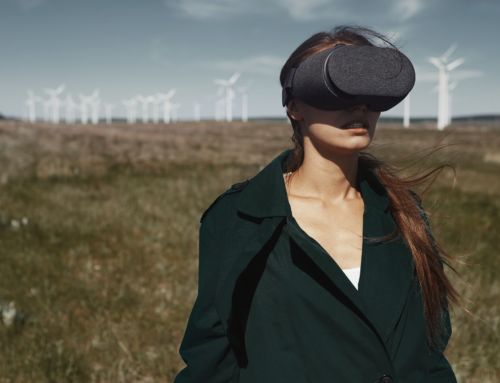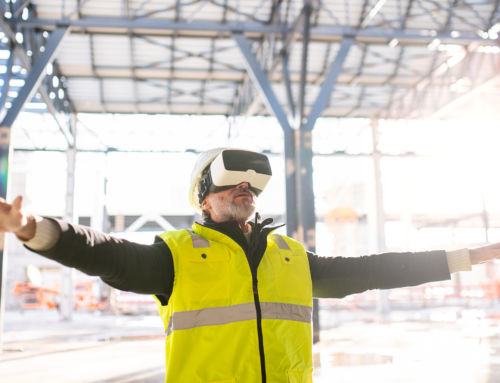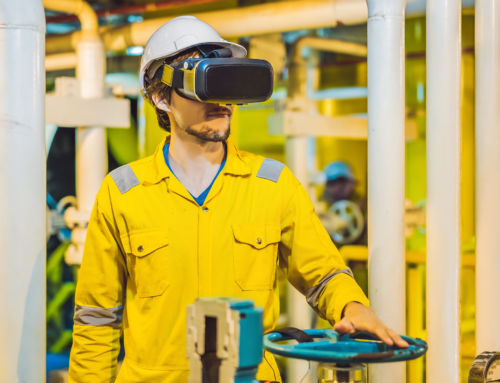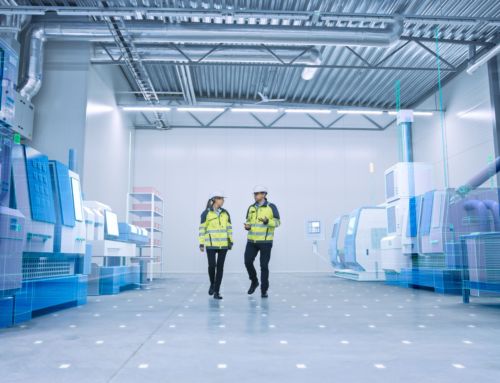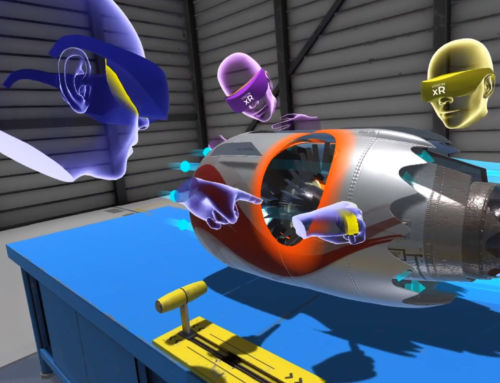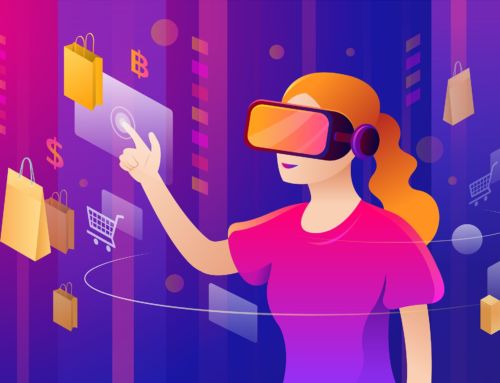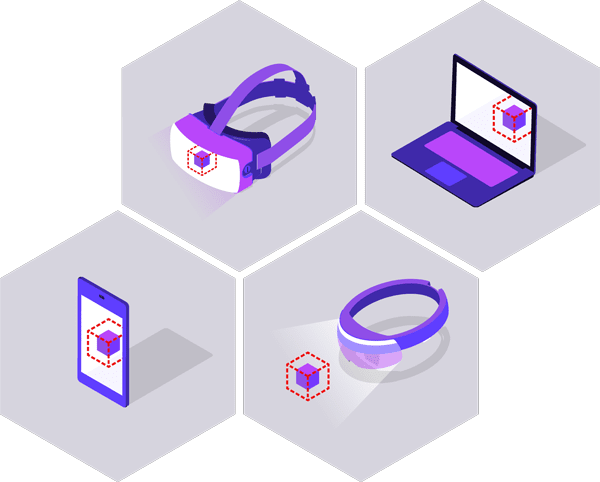Future Visual has seen strong results from virtual reality training programmes with our clients such as IATA and John Lewis and earlier this year we commissioned research on market opportunities and ROI measurement for #VR and #AR with Cambridge Business School. We were particularly keen to see research data published earlier this month by PWC who have undertaken one of the most comprehensive studies on virtual reality training.

PWC’s report looked into the effectiveness of virtual reality soft skills training in enterprise. The research was supported by Oculus for Business and the training was devised by Talespin with a strong focus on return of investment (ROI).
The report opens with the belief that VR training will likely be an accelerator that helps drive a new age of enterprise training and education by delivering a cost effective, immersive, and efficient experience to train employees on soft skills.
The headline findings of the report which confirm this are:
- Employees trained using VR completed training faster.
- Employees trained using VR were more confident.
- Employees trained using VR had a stronger emotional connection to the content.
- Employees trained using VR were more focused.
- VR can be more cost-effective at scale.
Detailed findings of the report:
- Training in VR was completed faster.
Employees trained up to four times faster in VR than in the classroom and 1.5 times faster than e-learn. The research accounted for the additional time needed to onboard new users in VR headsets for the first time (on average 10 extra minutes), and found it is still three times faster than classroom and 1.15x faster than e-learn.
- Employees who trained in VR were more confident:
Trainees with VR were up to 275% more confident to act on what they learned after training—a 40% improvement over classroom and 35% improvement over e-learn. They were almost two and a half times more confident in discussing diversity and inclusion issues after taking the training in virtual reality and nearly three times more confident in acting on diversity and inclusion issues after the VR training. Confidence is a key driver to success and helps learners connect better with others, while also feeling more satisfied with the time spent training.
- Employees who trained in VR were more emotionally connected:
V-learners felt 3.75 times more emotionally connected to the content than classroom learners and 2.3 times more connected than e-learners. People connect, understand and remember things more deeply when their emotions are involved.
- Employees who trained in VR were more focused:
VR-trained learners were up to 4 times more focused during training than their e-learning peers and 1.5 times more focused than their classroom peers. When learners are immersed in a VR experience, they tend to get more out of the training and will likely have better outcomes.
THE CONCLUSION:
V-learn, the ability to use virtual reality to train skills, is more effective at training soft skills concepts than classroom and e-learn training modalities. Learners are more confident, less distracted, have a stronger emotional connection, and when deployed to enough learners, v-learn for soft skills training can be more cost-effective than classroom or e-learning modalities.
Is VR soft skills training more effective than traditional training methods, and is VR soft skills training more cost-effective to deploy than traditional training methods? The answer to both questions is “yes.”
Companies should consider a multimodal approach in the future, as VR can be ideal for practicing what you learn in a safe and dynamic way. When you combine classroom, e-learn, and v-learn together, you are helping provide your employees with an industry leading approach. This new modality will likely help transform this new age of training and education in the enterprise.
The report overwhelmingly concludes that VR can be ready to deploy at enterprise scale. The cost to deploy is also dropping, with the creation of effective VR training programmes and new technology.
Read the full PWC Report: THE EFFECTIVENESS OF VIRTUAL REALITY SOFT SKILLS TRAINING IN THE ENTERPRISE.
Future Visual and Cambridge Business School research: What business challenges are you solving with a VR or AR solution and how is that delivering ROI?”
To get in touch to discuss your next project contact us here: https://www.futurevisual.com/contact/
Future Visual has seen strong results from virtual reality training programmes with our clients such as IATA and John Lewis and earlier this year we commissioned research on market opportunities and ROI measurement for #VR and #AR with Cambridge Business School. We were particularly keen to see research data published earlier this month by PWC who have undertaken one of the most comprehensive studies on virtual reality training.

PWC’s report looked into the effectiveness of virtual reality soft skills training in enterprise. The research was supported by Oculus for Business and the training was devised by Talespin with a strong focus on return of investment (ROI).
The report opens with the belief that VR training will likely be an accelerator that helps drive a new age of enterprise training and education by delivering a cost effective, immersive, and efficient experience to train employees on soft skills.
The headline findings of the report which confirm this are:
- Employees trained using VR completed training faster.
- Employees trained using VR were more confident.
- Employees trained using VR had a stronger emotional connection to the content.
- Employees trained using VR were more focused.
- VR can be more cost-effective at scale.
Detailed findings of the report:
- Training in VR was completed faster.
Employees trained up to four times faster in VR than in the classroom and 1.5 times faster than e-learn. The research accounted for the additional time needed to onboard new users in VR headsets for the first time (on average 10 extra minutes), and found it is still three times faster than classroom and 1.15x faster than e-learn.
- Employees who trained in VR were more confident:
Trainees with VR were up to 275% more confident to act on what they learned after training—a 40% improvement over classroom and 35% improvement over e-learn. They were almost two and a half times more confident in discussing diversity and inclusion issues after taking the training in virtual reality and nearly three times more confident in acting on diversity and inclusion issues after the VR training. Confidence is a key driver to success and helps learners connect better with others, while also feeling more satisfied with the time spent training.
- Employees who trained in VR were more emotionally connected:
V-learners felt 3.75 times more emotionally connected to the content than classroom learners and 2.3 times more connected than e-learners. People connect, understand and remember things more deeply when their emotions are involved.
- Employees who trained in VR were more focused:
VR-trained learners were up to 4 times more focused during training than their e-learning peers and 1.5 times more focused than their classroom peers. When learners are immersed in a VR experience, they tend to get more out of the training and will likely have better outcomes.
THE CONCLUSION:
V-learn, the ability to use virtual reality to train skills, is more effective at training soft skills concepts than classroom and e-learn training modalities. Learners are more confident, less distracted, have a stronger emotional connection, and when deployed to enough learners, v-learn for soft skills training can be more cost-effective than classroom or e-learning modalities.
Is VR soft skills training more effective than traditional training methods, and is VR soft skills training more cost-effective to deploy than traditional training methods? The answer to both questions is “yes.”
Companies should consider a multimodal approach in the future, as VR can be ideal for practicing what you learn in a safe and dynamic way. When you combine classroom, e-learn, and v-learn together, you are helping provide your employees with an industry leading approach. This new modality will likely help transform this new age of training and education in the enterprise.
The report overwhelmingly concludes that VR can be ready to deploy at enterprise scale. The cost to deploy is also dropping, with the creation of effective VR training programmes and new technology.
Read the full PWC Report: THE EFFECTIVENESS OF VIRTUAL REALITY SOFT SKILLS TRAINING IN THE ENTERPRISE.
Future Visual and Cambridge Business School research: What business challenges are you solving with a VR or AR solution and how is that delivering ROI?”
To get in touch to discuss your next project contact us here: https://www.futurevisual.com/contact/





